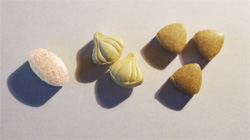Winterize Yourself
The official start to winter is quickly approaching, but for most of us the cold, wet, snowy, rainy weather has already begun. Today’s Memo contains some tips on how to winterize your body by focusing on basic nutritional supplementation.
Water: Make sure you increase fluid intake during the winter. The humidity is lower because the heat is on in your home, work, and school. You breathe out more water as a result. You have to replace those fluids. Every day drink one-half your body weight in ounces of water or any other fluid; if you weigh 150 pounds, drink 75 ounces of water daily.
Multivitamin-mineral (MVMM): If you haven’t been consistent in taking your MVMM, this is a good time to begin. Your immune system needs some basic nutrients and a MVMM is a good place to start, especially if it’s one that contains plant concentrates and extracts.
Probiotics: The immune system starts in the gut. Taking a probiotic every day can help your immune system function better. In addition, taking fiber with the probiotic can help feed all the good bacteria in your digestive system.
Vitamin D: Consider adding vitamin D to your regimen because we get a lot less sun during the winter. Ask your physician to test your vitamin D levels; if it’s below 30 ng/ml, add 2,000 IU vitamin D to your supplementation. There’s no real danger in taking vitamin D, so make sure you’re getting some even without a test.
Antioxidants: Help your immune system; add additional vitamins C, E, and beta-carotene to your supplementation.
Supplementation may or may not help you avoid getting a cold or the flu, but it may help reduce the severity and duration of a respiratory infection if you do get one. That’s worth the small expense of the supplements in my opinion.
Happy Thanksgiving!
Paula and I wish you all a Happy Thanksgiving. We are grateful for your support throughout the year. This week is one to spend with family and friends, so this will be the only Memo of the week. Thanks for being a member of the Dr. Chet family.
What are you prepared to do today?
Dr. Chet

